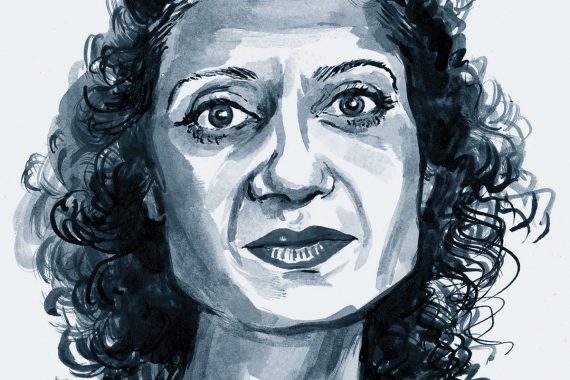Columnist Dr Shaba Nabi reflects on how an emergency incident reminded her of the value of holistic care
Anyone who knows me will be aware that despite my educator role, I am more of a Rottweiler than a teddy bear.
In partnership meetings I was always the first to demand the ‘bottom line’ – the profit margin, rather than income generated from any activity. Our practice was one of the first in the area to employ advanced nurse practitioners and pharmacists to manage workload, so the GPs could work to the ‘top of their licence’. Even though I had no connection with the LMC or General Practitioners Committee until 2016, I practised with the same resilient mindset of saying ‘No’ as the only way to survive.
The ability to see the pounds and pence in every transaction is a good skill in our job, but it is not the only thing that matters. There comes a tipping point where such transactional care becomes counterproductive and leads to poor health outcomes and excess spend. There is no better example of this than the continuing drive to ‘fix’ urgent care demand with any number of initiatives, ranging from NHS111 and community pharmacy schemes to a vision for completely separating out urgent and planned care, as outlined by Dr Claire Fuller in her stocktake report earlier this year.
All these initiatives fail to understand one fundamental issue: that urgent care demand in general practice often arises when planned care has gone wrong. And dysfunctional planned care is a result of years of underfunding, leading to workforce shortages and loss of continuity of care. While we are starved of resources, NHS England is simultaneously paying other providers nearly half our annual per-patient funding for a single, simple transaction, such as managing a sore throat or a urinary tract infection.
I was reminded of the saying ‘Not everything that counts, can be counted’ on my walk back to the practice this afternoon. I had just left an ICB meeting and was enjoying the 20-minute stroll in the sun when I saw a man lying on the road next to his motorbike. There was a crowd of people gathered around him, including the police, but paragraph 26 of Good Medical Practice was buzzing in my ear, so I stopped to offer help. Thankfully, the man was conscious and talking, and I tried to recall the last time I had been involved in a trauma call and what all the letters stood for.
Initially I felt hopelessly redundant and wondered what on earth I could offer this man, who clearly needed the expertise of a paramedic to whisk him away to the big shiny building. But as time passed, I realised what he needed at this point was simple – for someone to kneel down beside him, hold his hand, and care. Despite feeling like a fraud for introducing myself as a doctor and then offering nothing clinically, the fact that the words ‘You’re gonna be okay’ were coming from a doctor was all that mattered to him.
Nevertheless, I felt extremely relieved to hear the siren of the ambulance and grateful to hand over care to the experts in the green suits. But care comes in different forms. There’s the care in the resuscitation room of an emergency department, where no doubt the man ended up, but there’s also the care offered by someone who knows you or someone you trust.
My fear is that general practice is going to lose its holistic, enduring care – the care associated with trusting relationships – and that it will be replaced by a series of transactional sticking plasters, because there is no long-term strategy for health, let alone care.
Dr Shaba Nabi is a GP trainer in Bristol. Read more of her blogs here
Pulse July survey
Take our July 2025 survey to potentially win £1.000 worth of tokens













You versus the narcissists.
Caring doesn’t fit on their bar chart.
Risk and responsibility doesn’t trend on graphs.
Sacrifice isn’t trackable.
Helping others has no metric that they can compute or compare and shame.
Thus, transactions and inert completed “tasks” is the game, you must sadly play, to outsmart “them” and preserve your energy and self-respect. I am surprised how many of you stick yourselves within their web. The ICB and PCN is a mere blanket over your faces.
A lovely, uplifting stpry, and reminder that it is not all the fancy meds and devices that matter most to spirituality, but the loving kindness of another human who cares.
I think schools of medicine and nursing are forgetting this, and maybe now is the time for them to take it up again.
And I hope you have put in the RTA-medical attendant form for payment, as that is one extra that does NOT come out of GP global sum.
One of the most insightful and erudite articles I have read in a good while! 👏👏
I think the number of people on sertraline and winging a trendy ADHD diagnosis currently, with some cowboy high street “private doctors” needs to be counted. Observational point.